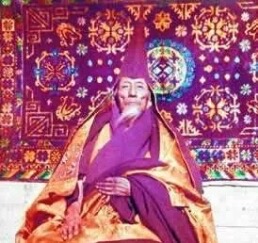Boundless compassion :- meditation 3 (we)
Daily meditations and practice 2-3 (Compassion)
Two meditation sessions of 10 minutes each, practiced as mentioned below:
– Turn off your phone or alternatively put it somewhere (or put it into a mode) that will not disturb or distract you for the duration of the meditation session.
– Sit in 7 Points of Vairocana meditation posture (alternatively sitting comfortably with your back as straight as possible)
– be aware of your state of mind before you start and take this into account when you are doing your meditations. For example, if you are very tired it might be very difficult for you to concentrate, be drowsy without awareness and easily fall asleep, adjust for this. Alternatively, you have just had an argument with somebody and your mind is racing or is very busy and this too will affect your meditation
1)Recite the aspiration prayer of the four boundless qualities.
May all beings have happiness and the causes of happiness.
May they be free of suffering and the causes of suffering.
May they never be separated from the great happiness which is devoid of suffering.
May they forever remain in boundless equanimity, free from both attachment and aversion.
2) Three minutes of being present with awareness (open awareness)
3) contemplation for 5 minutes :
Bring to mind someone else, any person, any group of people and yourself. It can be a different person or group for each session. It can be family, a friend, a stranger or a perceived enemy. Sincerely wish for both them and yourself to be free from suffering.
During this meditation, at your own tempo, recite the line “ may we be free from suffering and all the causes of suffering”.
Just like you don’t wish to suffer so to all other sentient beings wish to be free of suffering. The world is a better place when the people around us are free of suffering, in addition we have more opportunities to collaborate with others. We even have more possibilities to reconcile our differences with perceived enemies and with anyone whom harbours some animosity towards us when they and we ourselves are free of suffering and its causes, free of our negative, unhappy emotions.
4) Two minutes of being present with awareness (open awareness)
5) conclude with the dedication prayer
By this merit may all attain omniscience.
Having defeated the enemies of wrongdoing.
In the turbulent waves of birth, old age, sickness and death; May all beings be liberated from the ocean of samsara!
Post meditation practices
1) Be aware of the wish of yourself and others not to experience pain, unhappiness or suffering while going about one’s daily activities and whomever you might meet, contact or message, or if you join a gathering or use any public transport wish that we may be free from any pain, unhappiness or suffering.
2) In the morning and in the evening bring to mind at least:-
a) four things that you have to be grateful for. It may be for the people who support you in your life, it could be for your help, just simply for the oxygen which allows us to breathe or the water we have to be able to drink.
b) three ways in which your life is interdependent with others.
3) When one’s negative thoughts and emotions arise, through your own observation investigate whether you think you are these emotions?Are these emotions really you?
4) Similarly when negative emotions arise in others ask yourself “is this person really these emotions?” When someone else give rise to negative thoughts and emotions, try be accepting that they have these emotions and don’t take it personally. These are their emotions not yours. Similarly, although we don’t have to agree with their negative actions, try be forgiving towards them, have kindness towards them as they are suffering due to the emotions they are not able to control or transform.
Note: if anyone is unsure about how to go about the practices, or how to meditate in the present with awareness, please don’t be shy and feel free to contact me.
This chapter is part of: Introduction Course - Part 2: Bodhichitta
